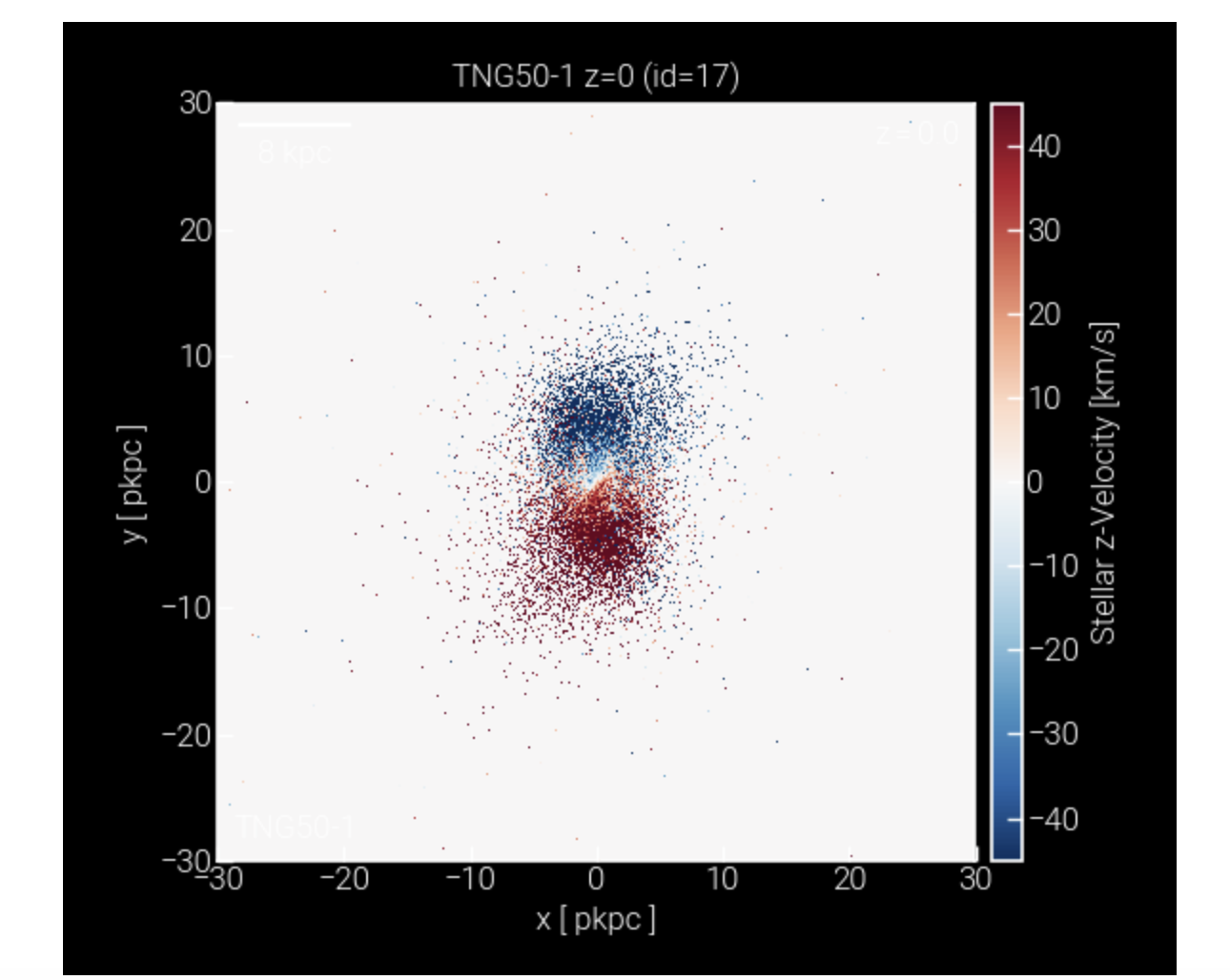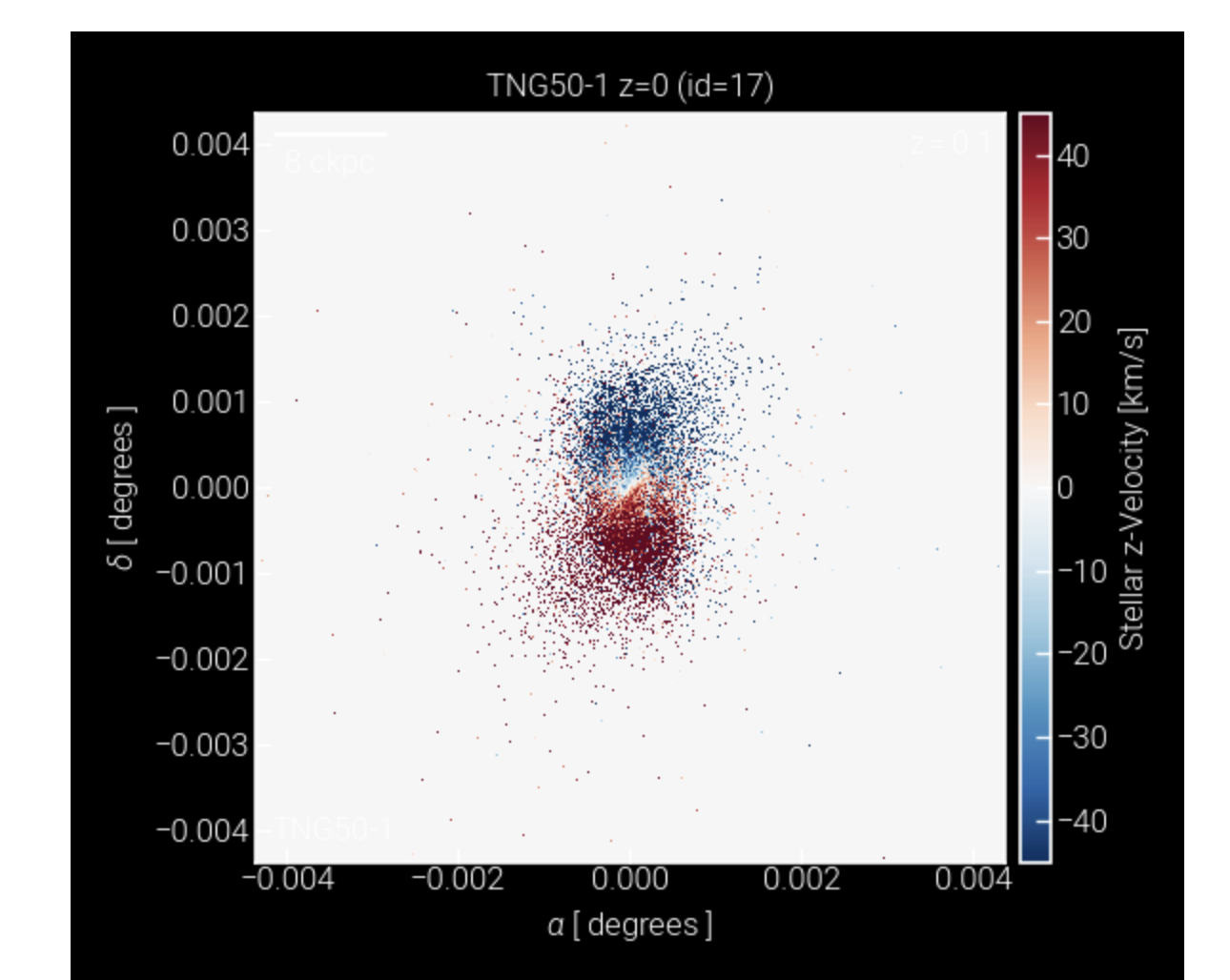I am trying to generate the mock velocity maps of low-mass subhalos at snapshot 99 using TNG50. After loading the stellar particles, I can make maps using the particle's coordinates and can convert them from code units to physical [kpc] units. However I wish to convert the physical units of maps from kpc to another unit for example in degrees [arcsec], Can you please tell me how can I do this?
For example below is a velocity map in physical units [kpc] generated from 'Visualize Galaxies and Halos' tools from the website for halo 17 in TNG50 at snapshot 99. I wish to convert the map to degrees (second image). How can I do this? Many thanks for your response.
Image 1:
Image 2:
Regards
Avinash
Dylan Nelson
25 Jul '24
You need to assume a distance (i.e. redshift). Then you can convert between linear and angular scales using the angular diameter distance.
For any snapshot at z>0, you can use the actual redshift of that snapshot, or you can "assume" that galaxies in that snapshot are actually at a different redshift. For z=0, you must assume some non-zero distance.
Dear Dylan,
I am trying to generate the mock velocity maps of low-mass subhalos at snapshot 99 using TNG50. After loading the stellar particles, I can make maps using the particle's coordinates and can convert them from code units to physical [kpc] units. However I wish to convert the physical units of maps from kpc to another unit for example in degrees [arcsec], Can you please tell me how can I do this?
For example below is a velocity map in physical units [kpc] generated from 'Visualize Galaxies and Halos' tools from the website for halo 17 in TNG50 at snapshot 99. I wish to convert the map to degrees (second image). How can I do this? Many thanks for your response.
Image 1:

Image 2:

Regards
Avinash
You need to assume a distance (i.e. redshift). Then you can convert between linear and angular scales using the angular diameter distance.
For any snapshot at z>0, you can use the actual redshift of that snapshot, or you can "assume" that galaxies in that snapshot are actually at a different redshift. For z=0, you must assume some non-zero distance.
Dear Dylan,
Thanks for the response. Yes, it make sense.
Regards
Avinash